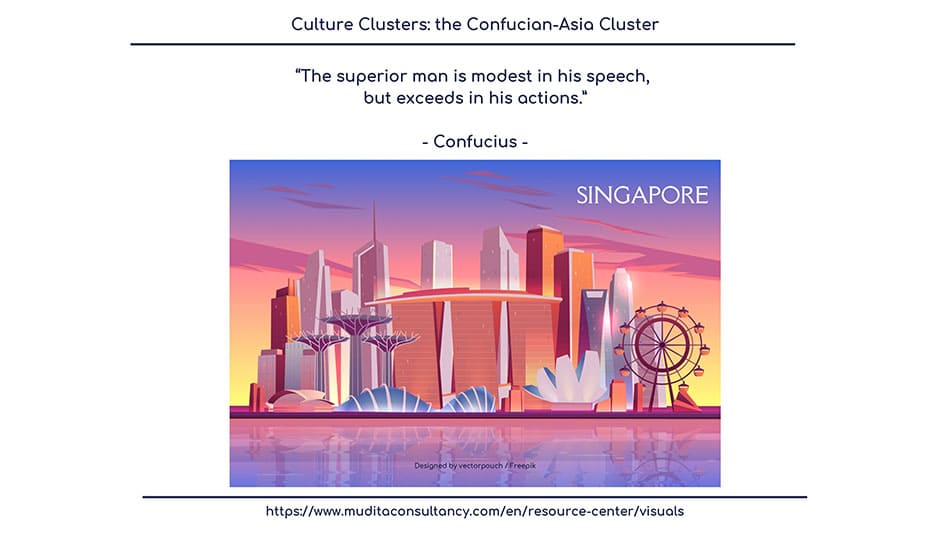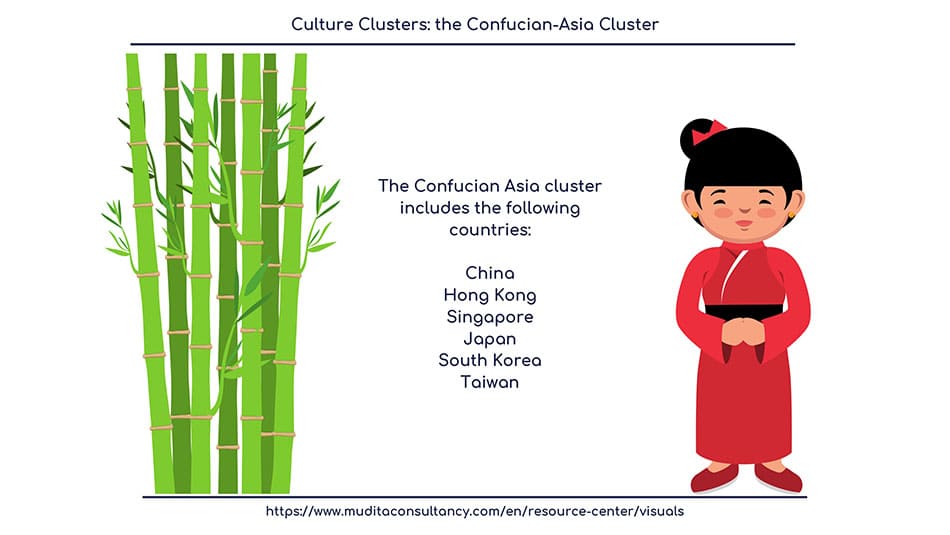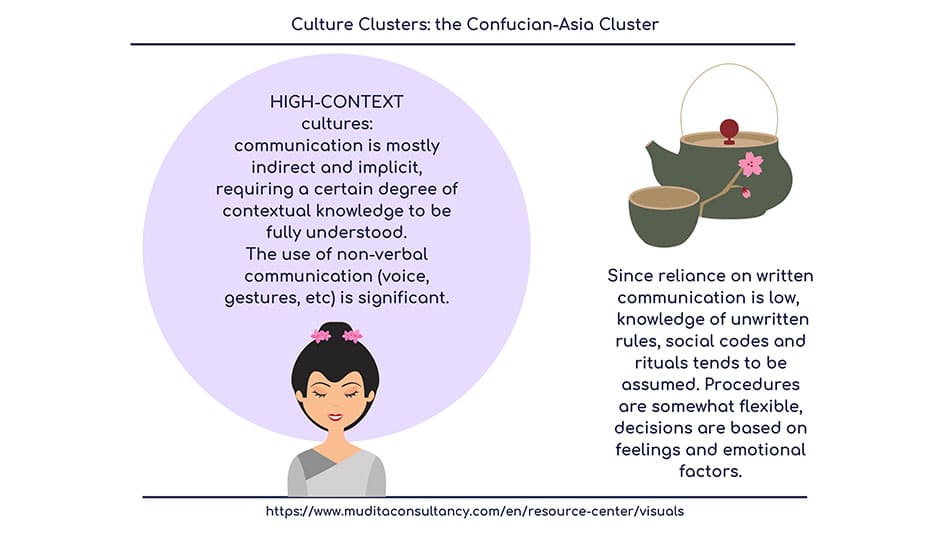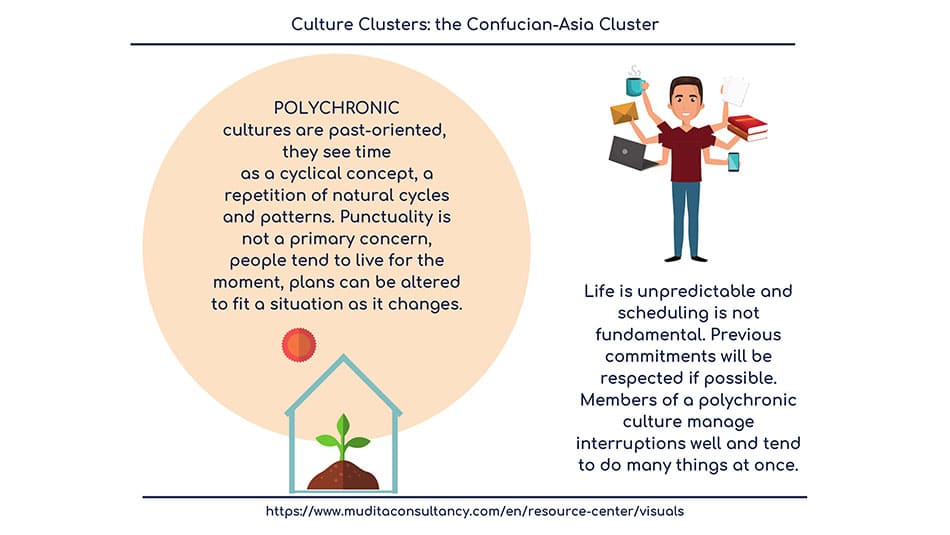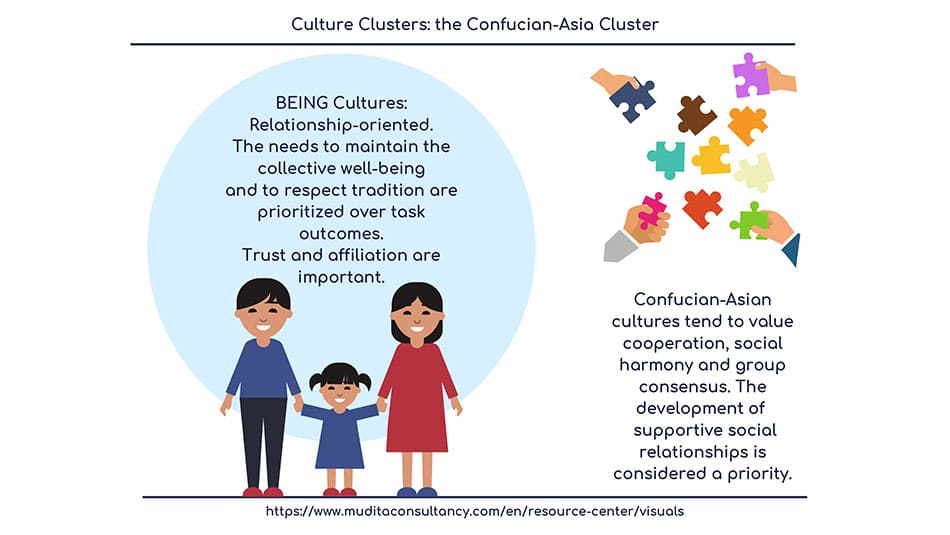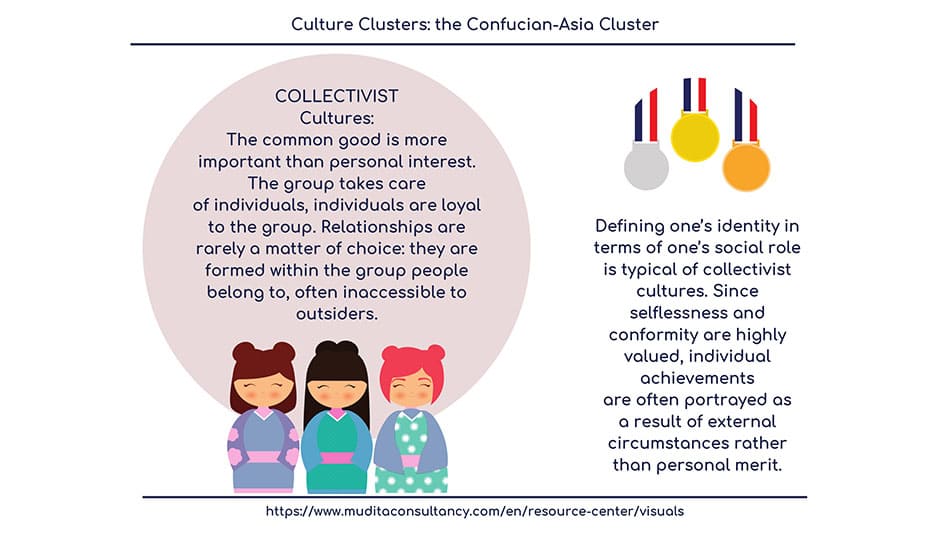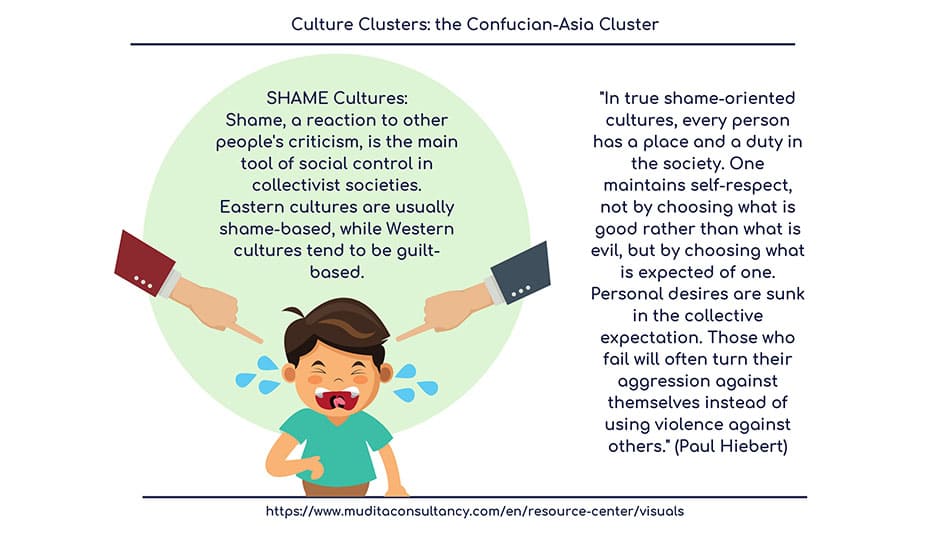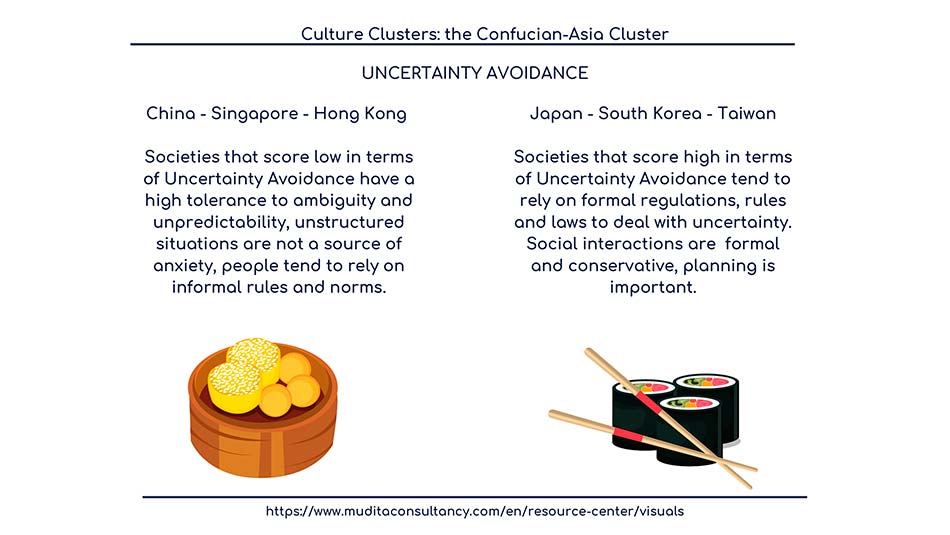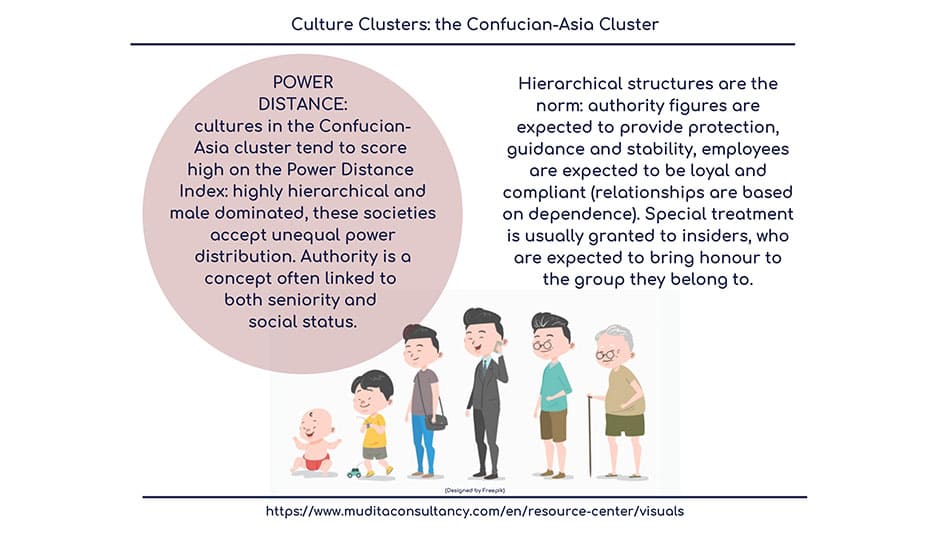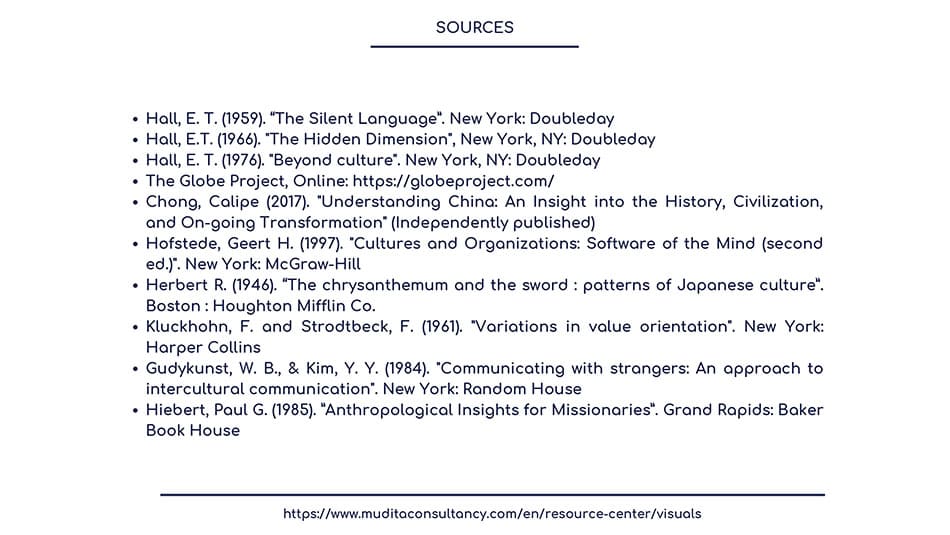The Confucian-Asia Cluster
The superior man is modest in his speech,
but exceeds in his actions.
- Confucius -
The shame-based Confucian-Asia cluster - that includes China, Japan, South Korea, Hong Kong, Singapore and Taiwan - is home to high-context, polychronic cultures, that prefer an indirect communication style (context is more important than words) and that see time as a cyclical concept, as a repetition of natural cycles and patterns.
These societies are highly collectivist and share a being orientation (preserving harmonious personal relationships is the priority. It’s worth noting that, generally speaking, in this cluster business dealings happen only between parties that share a solid relationship based on trust, as previously been discussed here with regard to business connections in China), people tend to adopt a collaborative more than a competitive approach, hierarchy is seen as a mean to preserve stability and social order.
In this cluster - conservative and male dominated - gender roles tend to be “traditional”.
With regard to leadership, the ideal leader for these societies is charismatic (inspirational/visionary/decisive), team-oriented and humane oriented (note: the first trait is also highly appreciated in the Anglo Cluster, but to a higher extent. The group score for “charismatic” in the Confucian-Asia Cluster is 5.63, below the 5.82 average of GLOBE Group scores, while in the Anglo Cluster it’s 6.05). In this cluster, leaders are expected to have high integrity, to be mindful of people’s needs, and to be conscious of face-saving behaviour. Given the hierarchical structure of Confucian-Asia societies, participative leadership is not particularly appreciated (the group score for “participative” in the Confucian-Asia Cluster is 4.99, below the 5.35 average of GLOBE Group scores).
***
Related posts:
- The Sub-Saharan Africa Cluster
- The Middle East Cluster
- The Latin Europe Cluster
- The Germanic Europe Cluster
- The Eastern Europe Cluster
- The Nordic Cluster
- The Latin America Cluster
- The Southern Asia Cluster
- The Anglo Cluster
***
SOURCES:
- House, R. J., Hanges, P. J., Javidan, M., Dorfman, P. W., & Gupta, V. (2004). "Culture, leadership, and organizations: The GLOBE study of 62 societies". CA: Thousand Oaks
- Hall, E. T. (1959). “The Silent Language”. New York: Doubleday
- Hall, E.T. (1966). "The Hidden Dimension". New York: Doubleday
- Hall, E. T. (1976). "Beyond culture". New York, NY: Doubleday
- The Globe Project, Online: https://globeproject.com/
- Hofstede, Geert H. (1997). "Cultures and Organizations: Software of the Mind". New York: McGraw-Hill
- Herbert R. (1946). “The chrysanthemum and the sword: patterns of Japanese culture”. Boston : Houghton Mifflin Co.
- Kluckhohn, F. and Strodtbeck, F. (1961). "Variations in value orientation". New York: Harper Collins
- Gudykunst, W. B., & Kim, Y. Y. (1984). "Communicating with strangers: An approach to intercultural communication". New York: Random House
- Hiebert, Paul G. (1985). ”Anthropological Insights for Missionaries”. Grand Rapids: Baker Book House
- Chong, Calipe (2017). "Understanding China: An Insight into the History, Civilization, and On-going Transformation". Independently published
Disclosure: This post contains affiliate links. If you decided to buy any of the products listed here, I would earn a small commission (at no additional cost to you).
